Gone are the days when people worked the same job until the day they retired; the modern workforce values dynamism over loyalty, variety over routine, and places the meaning of their work above or on par with salary and benefits. The modern workforce seeks jobs that connect to their passions and values. Working as a city planner, community organizer or fundraiser might not seem like they fit into the same career, but they may all be driven by a passion for developing safer, more accessible cities. Working as an editor for a magazine, a settlement support worker or a coordinator for a political literacy program may seem different, but perhaps the work is done out of a passion for voter rights.
More than ever, people are finding themselves in positions they could never have anticipated because their values and diverse skill sets enable them to build non-linear career paths.
This shift in how young people think about work has been referred to as the values revolution. This revolution is not about pay, hours or contracts; it’s a revolution led by young, politically engaged jobseekers who demand employers integrate values and ethics into their business model. The people at the forefront of this movement are a generation that has never known a time when climate change was not an immediate threat. According to a 2018 survey conducted by Deloitte, 77% of respondents in their early to late 20s said it was important to work at organizations whose values aligned with theirs. This is not new research; back in 2015, another study done by Global Tolerance found that half of the young people surveyed would choose purposeful work over a high salary.
Social values matter deeply to this population, and with that, meaningful work is becoming increasingly important. This means that organizations must authentically embrace, communicate and integrate their values within all areas of their operations.
For many of the people in the ASI community, the value driving our work is a belief and commitment to creating a just and sustainable future. Whether the work involves creating mathematical models for climate change, understanding the psychology of consumption, researching migratory patterns or educating young people in stewardship, someone could conceivably navigate a career in all these areas and continue to find consistent meaning and purpose in their work. With more jobs than ever in the climate action sector, and a more qualified and trained workforce than ever, organizations working toward a sustainable future have an opportunity to harness this shift in the workforce to create more meaningful opportunities and increase impact. This can be done in a number of ways, including the following:
Foster a culture of collaboration
One benefit of a workforce with diverse skill sets is the opportunity for unique collaborations to form across your organization. While conventionally, certain tasks or projects would be limited to specific roles given an assumed and rigid skill set, employees can be offered the space to collaborate on cross-departmental projects that spark their interest and leverage their unique skills and competencies. For example, why only allow one fundraiser to take care of fundraising when your accountant and program coordinator have those skills as well?
Collaboration also provides employees with opportunities to learn from others in the field, expanding both their skill set and network, and ultimately offering space for more effective and creative solution development. Expanding on the idea that collaboration between people with diverse perspectives and skill sets provides space for creativity and unique approaches to challenges, employees can also benefit from opportunities to learn from and collaborate with others outside of their workplace. Especially as it relates to climate action and sustainability, intergenerational, cross-sectoral, and cross-industrial collaboration is key to unlocking the potential of a workforce. ASI is preparing to launch a members network in the summer of 2023, that supports sustainability professionals with opportunities to learn from one another, share ideas, and work together towards a shared vision, and we’ve designed the network with this in mind.
Support your employees
Investing in your employees not only allows them to better serve your organization in their roles but in doing so, it also serves the greater goals of your organization. This could mean supporting employees to do work that engages their full range of skills, encouraging meaningful professional development, giving space for them to experiment and learn, and supporting staff to move on to the next thing when they are ready. At ASI, we offer a range of professional development opportunities through our courses that act as building blocks to customizable micro-credential pathways, allowing employees to increase impact and expand their skill sets.
Employers also have an opportunity to mentor staff, further supporting them to have the greatest impact they can. Additionally, if your organization can maintain a network of current and former staff that have been supported and believe in and understand the work you’re doing it will only serve the organization in the long run.
Competent, value-driven employees have an impact.
If you have positive relationships and stay connected to those employees it not only strengthens your organization’s network but also increases individual employees’ impacts across their entire careers.
If instead of seeking to understand careers through job titles, we start to navigate them based on values, it can really shift the way workplaces operate. As a younger, more values-driven generation enters the workforce, organizations must also adapt in order to attract and retain highly skilled and talented employees, while also allowing them to reach their fullest potential. This requires collaborative workplaces with clear values that are fully integrated into all elements of the work. Hollow promises are no longer enough for the modern workforce; values-driven employees expect the companies they work for to deliver positive change while authentically embracing their values.
About the Academy for Sustainable Innovation
The Academy for Sustainable Innovation (ASI) partners with organizations and individuals who are passionate about leading Canada’s transition to a low-carbon, socially-inclusive economy.
ASI’s transition leadership programs invite current and future leaders to explore the mindsets, capabilities, and practices they need to affect positive change.


